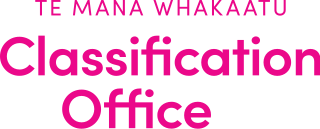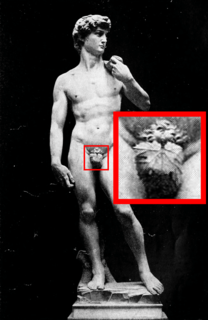Although Australia is considered to have, in general, both freedom of speech and a free and independent media, certain subject-matter is subject to various forms of government censorship. These include matters of national security, judicial non-publication or suppression orders, defamation law, the federal Racial Discrimination Act 1975 (Cth), film and literature classification, and advertising restrictions.

The Office of Film and Literature Classification, branded as the Classification Office, is an independent Crown entity established under Films, Videos, and Publications Classification Act 1993 responsible for censorship and classification of publications in New Zealand. A "publication" is defined broadly to be any thing that shows an image, representation, sign, statement, or word. This includes films, video games, books, magazines, CDs, T-shirts, street signs, jigsaw puzzles, drink cans, and slogans on campervans. The Chief Censor, Caroline Flora, is the chair of the Office.

Pornography laws by region vary throughout the world. The production and distribution of pornographic films are both activities that are lawful in many, but by no means all countries so long as the pornography features performers aged above a certain age, usually eighteen years. Further restrictions are often placed on such material.
Censorship in Singapore mainly targets political, racial, religious issues and homosexual content as defined by out-of-bounds markers.
In Canada, appeals by the judiciary to community standards and the public interest are the ultimate determinants of which forms of expression may legally be published, broadcast, or otherwise publicly disseminated. Other public organisations with the authority to censor include some tribunals and courts under provincial human rights laws, and the Canadian Radio-television and Telecommunications Commission, along with self-policing associations of private corporations such as the Canadian Association of Broadcasters and the Canadian Broadcast Standards Council.

Film censorship is carried out by various countries to differing degrees, sometimes as a result of powerful or relentless lobbying by organizations or individuals. Films that are banned in a particular country change over time.
Censorship in Germany has taken many forms throughout the history of the country. Various regimes have restricted the press, cinema, literature, and other entertainment venues. In contemporary Germany, the Grundgesetz generally guarantees freedom of press, speech, and opinion.
The Censorship of Publications Board is an independent board established by the Censorship of Publications Act, 1929 to examine books and periodicals that are for sale in the Republic of Ireland. It is governed by the Censorship of Publications Acts of 1929, 1946 and 1967. The Board has the authority to prohibit any book or periodical that they find to be obscene. This makes it illegal to buy, sell or distribute that publication in the Republic of Ireland. The Board prohibited a large number of publications in the past, including books by respected authors. However, since the 1990s it does not prohibit publications very often.
Censorship in Japan has taken many forms throughout the history of the country. While Article 21 of the Constitution of Japan guarantees freedom of expression and prohibits formal censorship, effective censorship of obscene content does exist and is justified by the Article 175 of the Criminal Code of Japan. Historically, the law has been interpreted in different ways—recently it has been interpreted to mean that all pornography must be at least partly censored, and a few arrests has been made based on this law.

Censorship is the suppression of speech, public communication, or other information. This may be done on the basis that such material is considered objectionable, harmful, sensitive, or "inconvenient". Censorship can be conducted by governments, private institutions and other controlling bodies.
Censorship in New Zealand has been present since around 1850 and is currently managed by the Classification Office under the Films, Videos, and Publications Classification Act 1993.
The media of Zimbabwe has varying amounts of control by successive governments, coming under tight restriction in recent years by the government of Robert Mugabe, particularly during the growing economic and political crisis in the country. The Zimbabwean constitution promotes freedom of the media and expression, however this is hampered by interference and the implementation of strict media laws. In its 2008 report, Reporters Without Borders ranked the Zimbabwean media as 151st out of 173.
An obscenity is any utterance or act that strongly offends the prevalent morality of the time. It is derived from the Latin obscēnus, obscaenus, "boding ill; disgusting; indecent", of uncertain etymology. Such loaded language can be used to indicate strong moral repugnance and outrage, in expressions such as "obscene profits" and "the obscenity of war". As a legal term, it usually refers to graphic depictions of people engaged in sexual and excretory activity, and related utterances of profane speech.
United States v. 12 200-ft. Reels of Film, 413 U.S. 123 (1973), was an in rem case decided by the United States Supreme Court that considered the question of whether the First Amendment required that citizens be allowed to import obscene material for their personal and private use at home, which was already held to be protected several years earlier. By a 5–4 margin, the Court held that it did not.

Freedom of expression in Canada is protected as a "fundamental freedom" by section 2 of the Canadian Charter of Rights and Freedoms, however, in practice the Charter permits the government to enforce "reasonable" limits censoring speech. Hate speech, obscenity, and defamation are common categories of restricted speech in Canada. During the 1970 October Crisis, the War Measures Act was used to limit speech from the militant political opposition.
Book censorship is the removal, suppression, or restricted circulation of literary, artistic, or educational material – of images, ideas, and information – on the grounds that these are morally or otherwise objectionable according to the standards applied by the censor. Censorship is "the regulation of speech and other forms of expression by an entrenched authority". The overall intent of censorship, in any form, is to act as "a kind of safeguard for society, typically to protect norms and values [...] censorship suppresses what is considered objectionable from a political, moral, or religious standpoint."

Book censorship is the act of some authority taking measures to suppress ideas and information within a book. Censorship is "the regulation of free speech and other forms of entrenched authority". Censors typically identify as either a concerned parent, community members who react to a text without reading, or local or national organizations. Marshall University Library defines a banned book as one that is "removed from a library, classroom etc." and a challenged book as one that is "requested to be removed from a library, classroom etc." Books can be censored by burning, shelf removal, school censorship, and banning books. Books are most often censored for age appropriateness, offensive language, sexual content, amongst other reasons. Similarly, religions may issue lists of banned books, such as the historical example of the Roman Catholic Church's Index Librorum Prohibitorum and bans of such books as Salman Rushdie's The Satanic Verses by Ayatollah Khomeini, which do not always carry legal force. Censorship can be enacted at the national or subnational level as well, and can carry legal penalties. Books may also be challenged at a local community level, although successful bans do not extend outside that area.
United States obscenity law deals with the regulation or suppression of what is considered obscenity. In the United States, discussion of obscenity typically relates to pornography, as well as issues of freedom of speech and of the press, otherwise protected by the First Amendment to the Constitution of the United States. Issues of obscenity arise at federal and state levels. The States have a direct interest in public morality and have responsibility in relation to criminal law matters, including the punishment for the production and sale of obscene materials. State laws operate only within the jurisdiction of each state, and there are wide differences in such laws. The federal government is involved in the issue indirectly, by making it an offense to distribute obscene pornographic material depicting children through the mail, to broadcast them, as well as in relation to importation of such materials.

The Audiovisual Media Services Regulations 2014 is a statutory instrument of the Parliament of the United Kingdom that applies regulations to R18-rated pornography that is available through video on demand or other streaming platforms. Prior to the regulations coming into force, neither Ofcom nor the British Board of Film Classification (BBFC) had jurisdiction over such content. In force from 1 December 2014, these regulations were made by the Secretary of State in exercise of the powers conferred by section 2(2) of the European Communities Act 1972.






